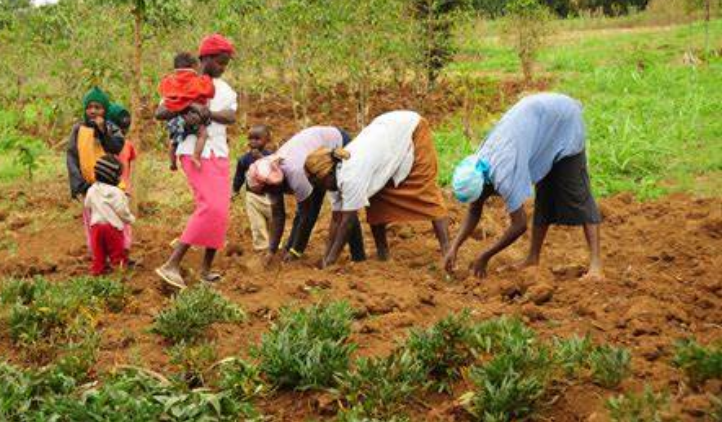The stakeholders included the
Federal Ministry of Agriculture and Rural Development, Ministry of Environment, Ministry of Women Affairs and Social Development, the Nigerian Institute of Soil Science (NISS), International Center for Environmental Health and Development as well as Civil Society Organisations (CSOs).
They made the call on Wednesday in Abuja at the National CSOs Advocacy Dialogue with the theme: “Climate Justice and Economic Resilience Project for Rural Women Farmers in Nigeria,” organised by the International Center for Environmental Health and Development (ICEHD).
Dr Ndudi Bowei, Country Manager, Rose of Sharon Foundation, said that the NGPA policy document launched in 2019, to fast track the adoption of gender sensitive and responsive approaches towards engendering agricultural plans and
programmes.
The foundation is a partner with ICEHD in the implementation of Climate Justice and Economic Resilience Project for Rural Women Farmers in Nigeria.
The approach, according to her, would ensure that men and women have access to and control productive resources to bridge gender gaps.
Bowei who frowned at gender inequality in terms of access to land resources, market, credit facilities, education, among others, said that domestication and implementation of the policy document in terms of funding would get rid of the gender biases.
She said that, “gender inequalities limit agricultural productivity and efficiency and in so doing, undermine development agenda.
“Failure to recognise the different roles of women and people with special needs is costly because it result in misguided projects and programmes, foregone agricultural output and incomes, as well as food and nutrition insecurity.
“It is time to take into account the critical contribution and role of women in agricultural production in order to move women and people with special needs from subsistence into higher value market oriented production.”
According to her, the meeting will influence gender-based agricultural policy and climate change that has been crying for funding to implement its laudable objectives.
“The meeting will expand that and make it new to government to know how important it is for budget to be allocated to the implementation of the good policy that will actually help women farmers to grow their businesses and have access to land resources and others,” she said.
Bowei said the policy document would enhance the platform to build agribusiness ecosystem to meet both domestic and foreign demands to achieve food security and accelerate development.
According to her, the gender policy on agriculture is expected to drastically reduce the vulnerability of women to biases in agriculture, address the unequal gender power relation and bridge existing gaps.
This, she said, would improve the contributions of smallholder farmers who are predominantly women with special needs.
Mrs Ifeoma Ayanwu, Head, Gender Unit, FMARD, said that women make up about 50 per cent of the country’s population and are responsible for carrying out 70 per cent of agricultural labour, 50 per cent of animal husbandry related activities and 60 per cent of food processing activities.
She, however, said that they have access to less than 20 per cent of available agricultural resources, stressing tha the gap was a serious impediment to maximising agricultural production.
“Implementation of the document will achieve gender-based reforms and increasing productivity by men and women along all the value chains, improve food security, reduce hunger, poverty and sustain the livelihoods of men and women in agricultural value chains for the common good,” she said.
Mrs Ngozi Nwosu-Juba, ICEHD partner, said the dialogue was organised for CSOs and leaders of women farmer groups to review findings and make recommendations on the way forward towards mitigating the impact of climate change on women in agriculture.
Nwosu-Juba said climate change has a greater impact as it disproportionately affects women and widens gender inequalities.
“Women in their diversity are increasingly being recognised as more vulnerable to climate change impacts than men, as they constitute the majority of the world’s poor and are more dependent on natural resources, which climate change threatens the most.
“Major issues currently affecting women and girls, which our proposed work is addressing include: food insecurity, loss of income, and lack of financial freedom due to climate change problems.
“Many women farmers are battling with climate change crisis and. its adverse effect on agricultural produce and crops production, health and wellbeing and challenges of poor patronage, loss of access to markets and profits exacerbated by COVID-19,” she said.
Reports haveit that the objectives of the dialogue include engaging CSOs on gender and climate change.
It also aimed to discuss climate challenges and its adverse impacts on food production in relation to women farmers and deliberate on steps towards improving income generating activities of women farmers, among others
